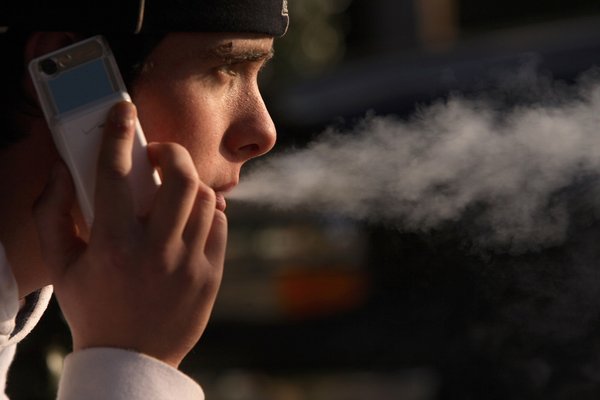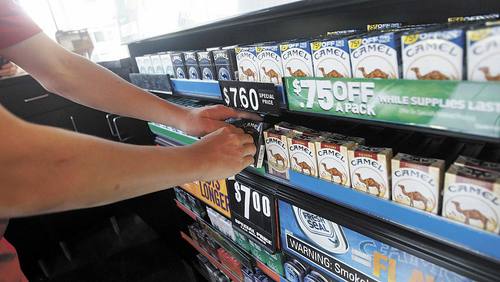How Obama’s tobacco tax would drive down smoking rates
By Sarah Kliff, Washington Post
President Obama’s proposal to nearly double the federal tobacco tax would help fund a universal pre-K program. And, if history is any guide, it would likely have a marked impact on driving down the country’s smoking rates.
“Increasing the price of tobacco is the single most effective way to discourage kids from smoking,” CDC director Tom Frieden told reporters Tuesday afternoon. “We estimate this would result in at least 230,000 fewer kids smoking than would have smoked if the tobacco tax does not go into effect.”
Researchers have conducted over 100 studies that have “clearly and consistently demonstrated that higher cigarette and other tobacco product prices reduce tobacco use,” Frank Chaloupka, a professor at the University of Illinois in Chicago, writes. While tobacco is an addictive substance, demand tends to be surprisingly elastic: Price increases have reliably shown to decrease cigarette purchases.
The Congressional Budget Office recently looked at what would happen if the country implemented a 50-cent per pack tax on cigarettes. It estimates, given the research we have on tobacco taxes, that the price increase would lead to 1.4 million fewer smokers by 2021.
Many of those gains would be concentrated among younger Americans, who would take up smoking at lower rates:
A few years after the hypothetical tax increase took effect, the number of 12- to 17-year-olds who smoked cigarettes would be about 5 percent lower than it would be otherwise, the number of 18-year-old smokers would be 4.5 percent lower, the number of 19- to 39-year-old smokers would be almost 4 percent lower, and the number of smokers age 40 or older would be about 1.5 percent lower.
The CBO data suggests that a cigarette tax is more successful at reducing tobacco use among shorter-term smokers, vs. older Americans who may have been smokers for a longer period of time.
Even among those who don’t fully quit, tobacco taxes do appear to effect the intensity of smoking. A 2012 study in the journal Tobacco Control interviewed thousands of smokers over a time period where states increased their tobacco taxes. It found that the most intense smokers — those who smoked 40 or more cigarettes per day — saw the steepest decline in cigarette consumption.
“The dramatic reductions in daily smoking might be driven,at least in part, by heavier smokers’ desire to reduce the number of cigarettes they smoke per day,” lead study author Patricia A Cavazos-Rehg writes. “This could be because of their comorbid health problems and/or advice from influential persons (eg, doctors/friends/family) to try to quit and/or reduce smoking.”
http://www.washingtonpost.com/blogs/wonkblog/wp/2013/04/11/how-obamas-tobacco-tax-would-drive-down-smoking-rates/


